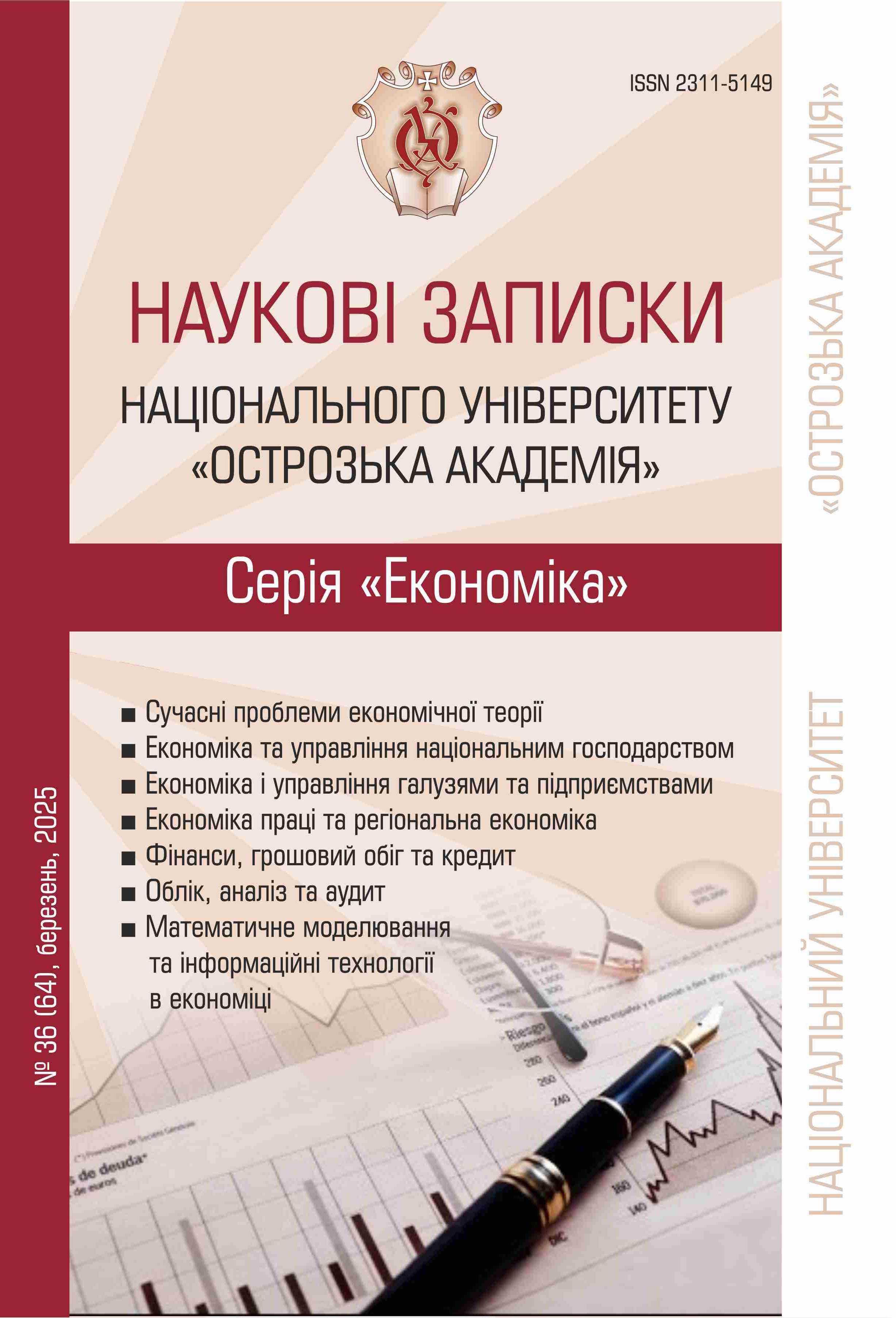ВПЛИВ ЕКОЛОГІЧНОГО ПОДАТКУ НА КОНКУРЕНТОСПРОМОЖНІСТЬ ПІДПРИЄМСТВ УКРАЇНИ У КОНТЕКСТІ ТЕОРІЇ ОБМЕЖЕНЬ
DOI:
https://doi.org/10.25264/2311-5149-2025-36(64)-36-43Ключові слова:
екологічний податок, конкурентоспроможність підприємств, «чисті» технології, «зелена» енергетика, теорія обмежень, ESG-критеріїАнотація
У статті розкрито вплив екологічного податку на конкурентоспроможність підприємств України. У контексті теорії обмежень досліджено, чи виступає він суттєвим обмеженням, чи взаємодіє з вже існуючими вузькими місцями, посилюючи їх негативний вплив. Авторами розглянуто динаміку надходжень екологічного податку до Державного та місцевих бюджетів України за 2020–2024 рр. Виокремлено ключові обмежуючі фактори, які безпосередньо впливають на досліджувані показники. Досліджено роль екологічного податку з обох сторін: з однієї, він може стимулювати підприємства України до впровадження інноваційних «чистих» технологій, покращення корпоративного іміджу та адаптації до міжнародних стандартів, з іншої – збільшувати фінансове навантаження та операційні витрати, потенційно знижуючи конкурентоспроможність підприємств. Представлено топ-10 компаній України, що впроваджують технології «зеленої» енергетики. Виокремлено ESG-критерії, які використовують для прийняття управлінських рішень щодо інвестування в бізнес. Розглянуто зарубіжний досвід щодо механізмів та норм оподаткування для забруднювачів навколишнього середовища. Запропоновано комплексний підхід для мінімізації негативних наслідків і посилення позитивного впливу екологічного податку на конкурентоспроможність підприємств України у контексті теорії обмежень.

